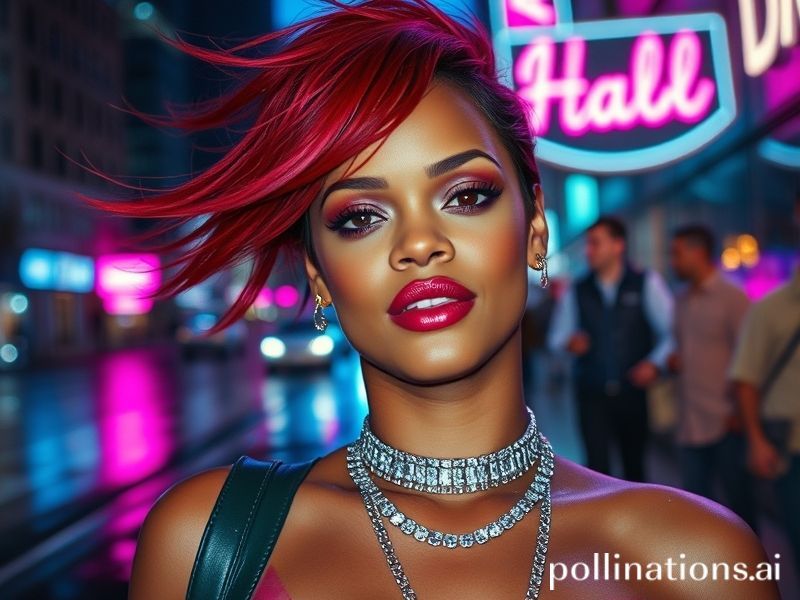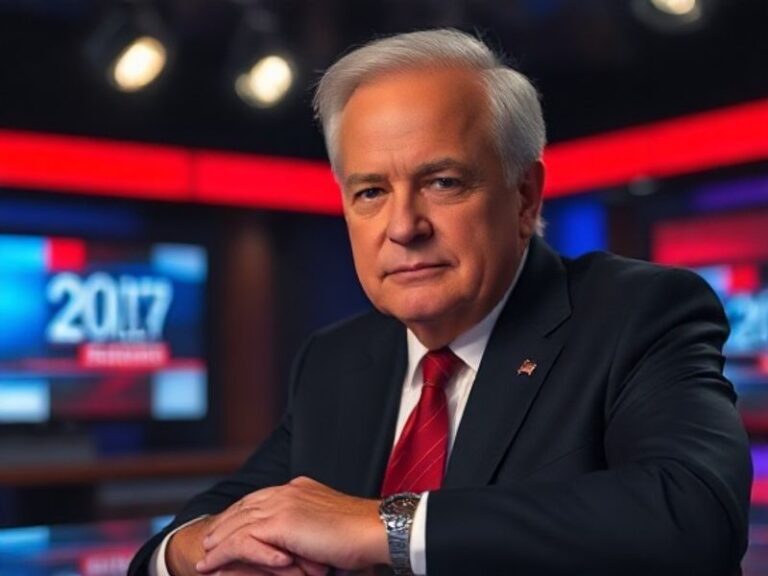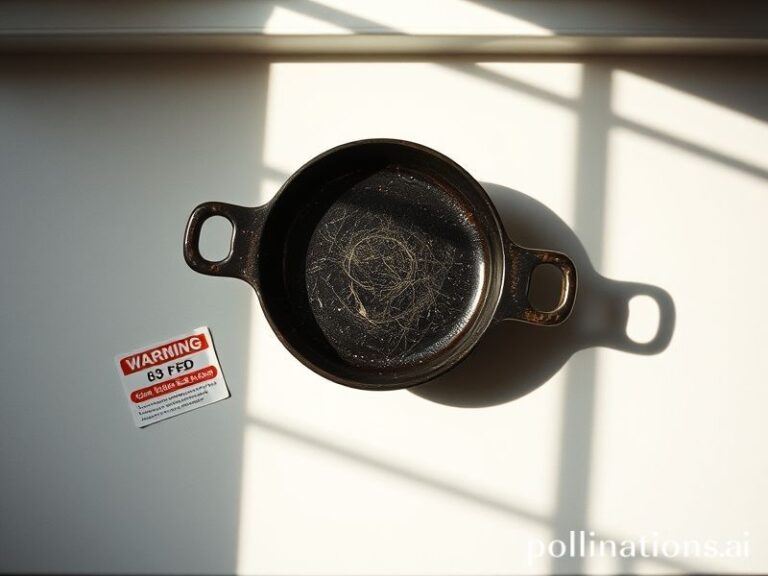From Barbados to Global Governance: How Rihanna Accidentally Became a One-Woman World Power
Rihanna, the Barbadian pop mercenary turned beauty oligarch, now sits at the nexus of every geopolitical tremor the planet can muster. Once upon a distant 2005, she was merely asking us not to stop the music; in 2024, she could halt entire supply chains with a single Fenty restock. From Dakar to Dubai, customs officers have learned to fear the lipstick SKU more than fentanyl: a container of “Uncensored” red can paralyze ports faster than a Chinese New Year backlog.
Consider the numbers—or, if you prefer, the bloodless poetry of global capitalism. Fenty Beauty is valued north of US $2.8 billion, a figure that eclipses the GDP of Belize and would comfortably bail out a mid-tier European bank on any given Friday. LVMH, that genteel French vampire squid, took a 50 % stake and promptly watched its own share price levitate like a virgin at a Caribbean carnival. Analysts in London call it “premiumization of melanin”; street vendors in Lagos simply paint “RIRI” on knock-off palettes and sell out by noon. Same pigment, different tax bracket.
Then there’s the soft-power angle. When Rihanna tweeted support for Indian farmers’ protests in 2021, New Delhi’s foreign ministry issued a 300-word rebuttal—roughly 299 words more than it managed when China parked tanks in Ladakh. A pop star with 108 million Twitter followers managed to make the world’s largest democracy hiccup, proving that foreign policy now runs through whatever doomscroll we’re all mainlining between Zoom calls.
Savvy diplomats have taken notes. The EU’s latest trade briefings contain an annex titled “Cultural Influencer Risk Matrix,” right between “Rare Earth Dependence” and “Cyber Mercenaries.” Meanwhile, Saudi Arabia flew her in for a private MDL Beast concert, hoping some of that Bad Gal shine might distract from bone saws. The irony was thicker than the desert air: a country that still requires male guardianship for women spent petrodollars to import the planet’s most ungovernable female icon. Somewhere in Riyadh, a cultural attaché updated his résumé.
The humanitarian calculus is equally warped. Through the Clara Lionel Foundation, Rihanna has funneled tens of millions to disaster relief from Puerto Rico to Malawi. The money arrives faster than most UN grants, partly because it isn’t tied up in 47 layers of bureaucratic origami. Still, every donation press release triggers a miniature stock surge in Coty and Kering—because if Rihanna cares about climate refugees, surely she’s about to drop a solar-powered highlighter palette. Capitalism has learned to monetize empathy in real time; we clap while our wallets leak.
And yet the woman herself remains strategically ungovernable. She declines Met Gala themes the way other people decline LinkedIn requests. She gave birth in May 2022 and teased new music the way the Kremlin teases tactical nukes—mostly to watch markets flutter. When she performed at the Super Bowl LVII halftime show eight months postpartum, the NFL’s global feed crashed in seventeen countries, presumably because servers, like the rest of us, weren’t emotionally ready for the return of the Barbados battalion.
If there is a moral to this glitter-slicked saga, it’s that sovereignty is now measured in streaming numbers and SKU velocity. Nation-states scramble to regulate TikTok while Rihanna weaponizes it to sell foundation shades calibrated to 50 different diasporas. Borders dissolve in the face of a well-timed lip gloss drop; trade wars pause when Sephora’s website buckles. Somewhere in Geneva, a graying trade delegate is Googling “what is a matte liquid bullet” between tariff negotiations.
So here we are: a one-woman multinational whose board meetings double as UN Security Council rehearsals. She sings when she feels like it, sells whatever she wants, and accidentally dictates IMF forecasts. The planet keeps spinning, but only after checking her release calendar first.







